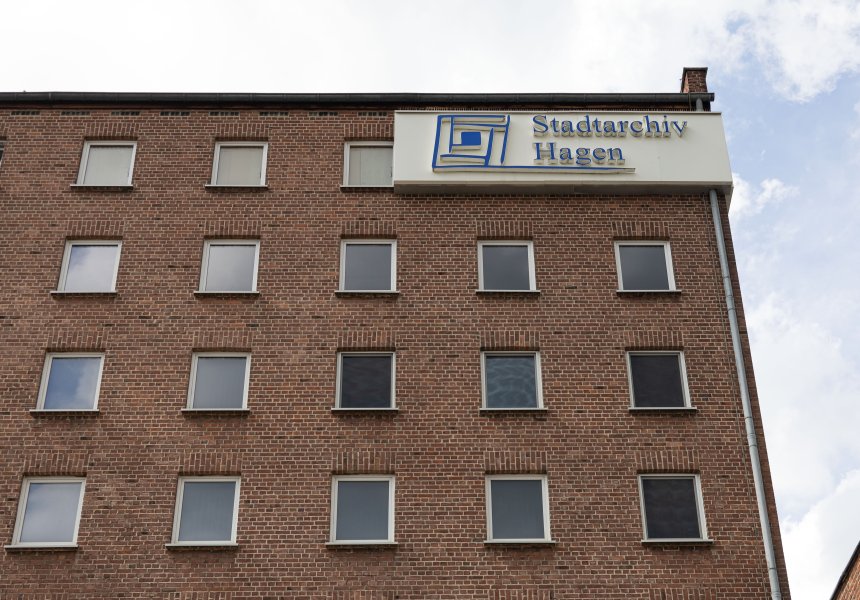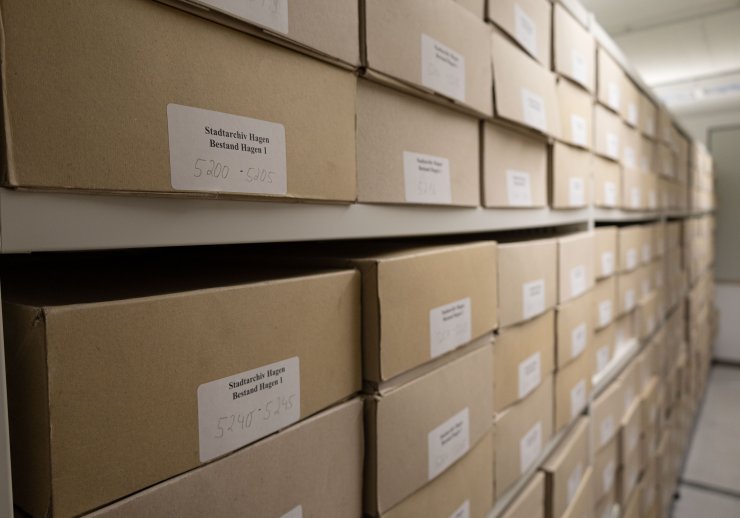Stadtarchiv Hagen
The history of the Municipal Archive of Hagen begins in the 18th century.
Because of the restructuring of the local government in 1929 the Archive expanded. The archives of the added municipalities like Haspe were now part of the Archive of Hagen. In the following years the Archive consistently grew bigger. 1975 the archive of Hohenlimburg and others were added.
Concerning the amount of possessions and collections within the Municipal Archive of Hagen today, the Archive is one of the biggest municipal archives in Northrhine-Westpahlia.
In 2018 the Archive moved into a more modern and user-friendly building and is now housed in the “Archivetower” on the WBH-Campus.
Stadtarchiv Hagen
Opening Times & Contact
Your Contact
Eilper Straße 132-136
58091 Hagen
Germany
10.00am - 12.00pm and 1.00pm - 4.00pm
An appointment is required!
The Holdings of the Municipal Archive of Hagen include different types of sources from the middle ages until today. The archive records the history of the city and its surrounding area of the past 800 years.
The archive records include over 70 bigger fonds, several collections, deposits and personal papers. Also included is the well-known photo archive containing over 1.5 million photos. As well as a library with about 25 000 books and an additional rare books collection.
The Archive of Hagen hosts the Music Archive and the Literature Archive of Westphalia, as well as the Karl-Ernst-Osthaus Archive and Collection. Worthy of being mentioned are also the private records of local companies and merchant families like Johann Diedrich Post, the paper manufacturer Vorster, Johann Caspar Harkort and the Varta Batterie AG. A collection concerning „Zwangsarbeit“ (forced labor) in Hagen between the years of 1939 and 1945 can also be found in the Archive. It also has part of the previously private Archives of House Busch and House Dahl.
The archived material from the planning department include architectural plans from the 19th and 20th century, like ones influenced by the „Hagener Impuls“ (before 1914), Bauhaus (1920s) or the reconstruction of Hagen after World War II (1946-1955).
The holdings of the archive can be viewed at the archive with an appointment during the visiting hours. A large part of the archive can be researched online.


